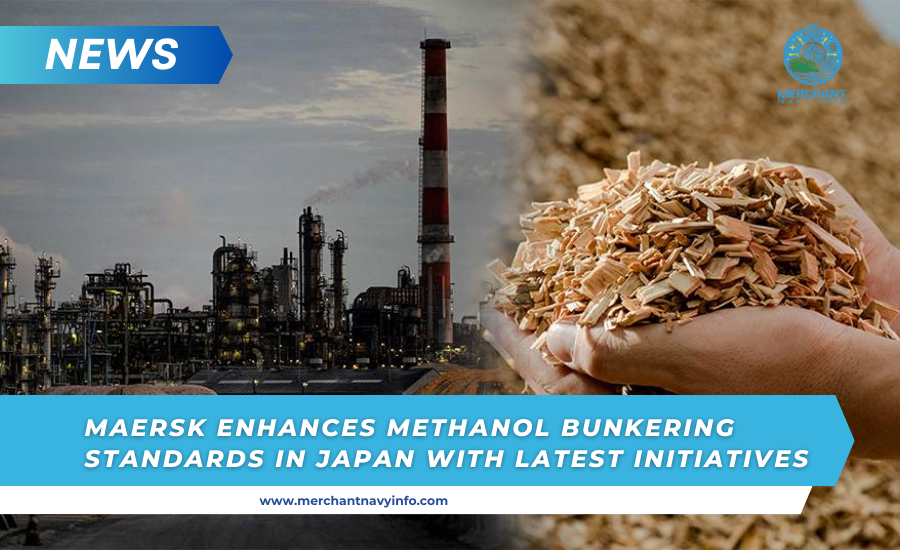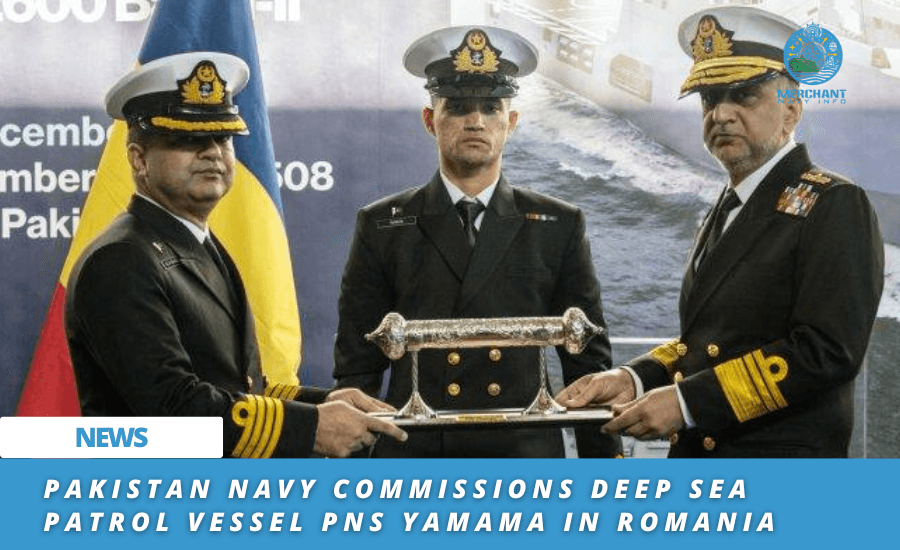
Maersk Is Raising The Bar On Methanol Sourcing In Japan With Latest Initiative
Maersk A/S (Maersk) has co-hosted Japan’s first ‘Methanol Bunkering Simulation’ at the Port of Yokohama, marking a pivotal moment for Japan’s methanol bunkering industry. The simulation included Maersk’s newest dual-fuel methanol vessel, Alette Maersk, recently launched in Los Angeles.
During the simulation, the Maersk vessel worked alongside Kokuka Sangyo’s methanol tanker, Eikamaru, testing key bunkering operations such as docking, separation, and hose connections. The initiative aims to support Japan in developing methanol fuel guidelines and infrastructure.
The simulation represents an important development following Maersk’s previous signing of a memorandum of understanding with the City of Yokohama and Mitsubishi Gas Chemical to develop methanol fueling infrastructure in Yokohama. The effort has also received support from key stakeholders, including the Ministry of Land, Infrastructure, Transport and Tourism’s Ports and Terminals Office.
Kenzo Nakagawa, Director of the Industrial Ports Policy Division at the Bureau of Ports and Terminals, praised the simulation, noting that the knowledge gained will be critical to establishing methanol bunkering hubs across Japan. He noted that the Port and Terminal Office intends to set up a study group to promote the development of these centers while benefiting from the valuable results achieved by the simulation.
Yasuhiro Shimbo, General Manager of the Port of Yokohama Terminal Office, praised Maersk for its role in the simulation and emphasized Yokohama’s commitment to enhancing methanol bunkering capabilities and contributing to the decarbonization of Japanese and international shipping.
Masahiko Naito, Head of C1 Chemicals Division, said the simulation was important in Japan’s efforts to establish methanol supply and achieve carbon neutrality. He expressed his pleasure at the successful collaboration with the many partners involved in the project.
Toru Nishiyama, General Manager of Maersk Northeast Asia, emphasized the company’s commitment to a carbon-neutral future and expressed his pleasure in supporting Japan’s ambitions in the shipping and energy sectors. He expressed his hope to continue working with the Japanese industry and ecosystem to accelerate the implementation of emission reduction practices.
Maersk, a global leader in logistics, is committed to improving and simplifying its customers’ supply chains. With operations in more than 130 countries and around 100,000 employees, Maersk is a leader in the logistics industry.
The company is committed to achieving net zero emissions by 2040, focusing on innovative technologies, modern ships, and low-emission fuels to drive this transformation. Maersk’s ambitious environmental goals reflect its wider commitment to sustainability and its role in leading the logistics industry towards a greener future.









